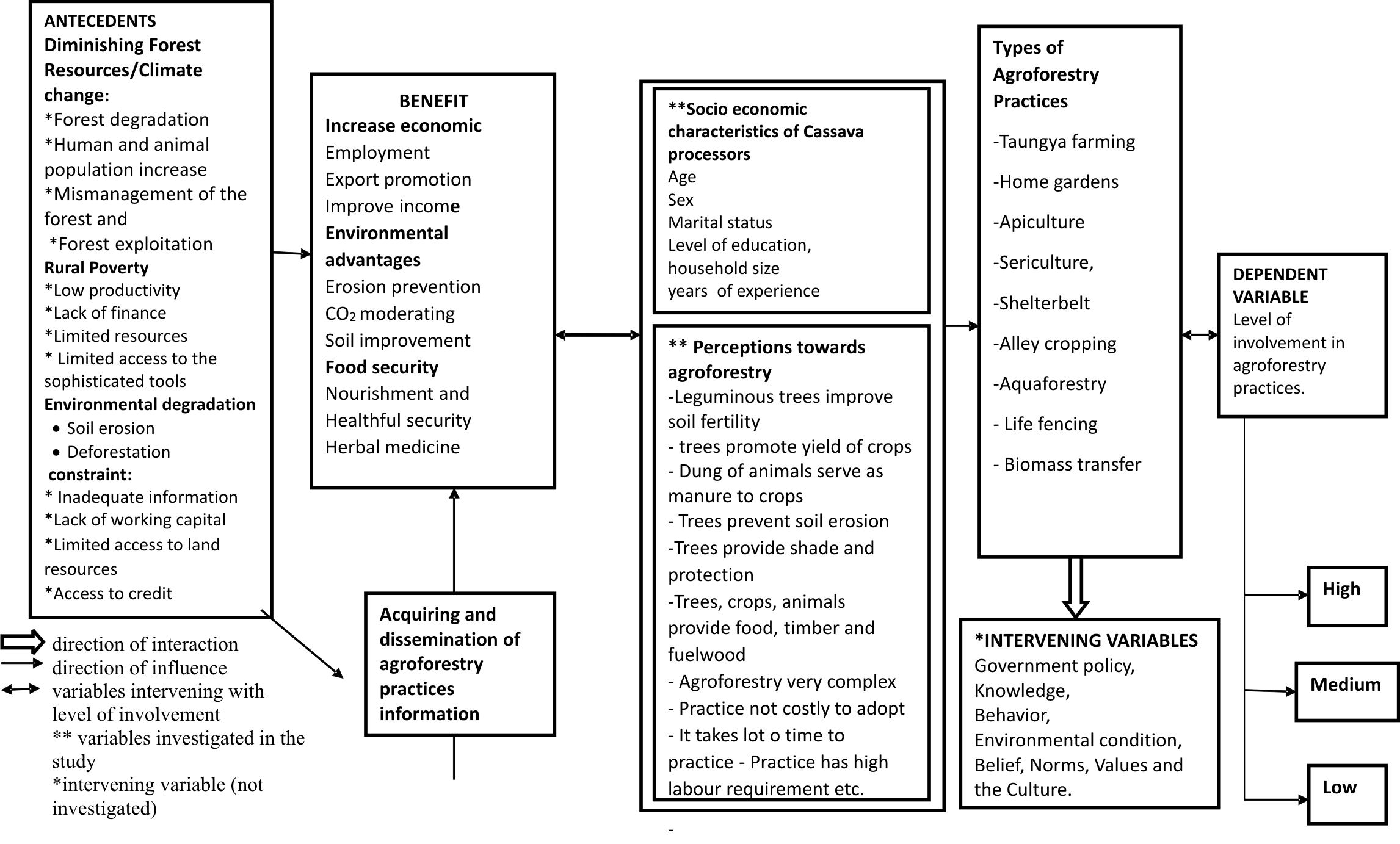Involvement of selected arable crop farmers in agro-forestry practices in Ekiti state, Nigeria
Keywords:
Involvement, Arable crops, Farmers, Production, Agroforestry, Practices.Abstract
This study assessed the involvement of selected arable crop farmers in agro-forestry in Ekiti State, Nigeria. Specifically, the study examined the social economic characteristics of the arable crops farmer in Ekiti State, Nigeria; described the different types of agroforestry practices; determined the level of involvement of the arable crops farmers in agroforestry practices and identified the constraints to involvement in agroforestry practices. Multi-stage sampling techniques were used to select 240 respondents. The analytical techniques involved descriptive and inferential statistics. The results showed that majority of the respondents were ducated (93.0%), married (59.2%), male (62.9%), Christians (72.9%) farmers with age bracket between 31 – 50 years old. Majority of the respondents had household (51.7%) size of 6-10 persons. The study also showed that respondents who cultivated less than 1 ha (49.6%), had no access to formal credit (84.2%), Majority (62.9%) of the farmers have low level of involvement in agroforestry practice. The correlation results confirmed that the respondent’s Years of Experience (r= -0.204; P=0.001) and Extension contact (r= 0.232; P=0.000) have significant relationship with involvement in agroforestry practices at 5%, Chi-square analysis showed that, there was a positive and significant association between Years of experience (χ2= 10.702;P=0.013) at p< 0.05, also there was a positive and significant association between Land ownership (χ2=18.844; P=0.004) at p< 0.01. However, the major constraints to agroforestry practices in the study area based on the average mean score (2,50) were fire outbreak severity (mean=3.19), Non-availability of seeds/seedlings (mean=2.81), Time consuming (mean=2.65), Pest /rodents and diseases (mean=2.64), Land tenure system (mean=2.60), Long gestation period (mean=2.59). The study concluded that agroforestry is an alternative agricultural practices that has been adopted by some arable crops farmers for the provision of income and forest products in the study area. Based on the findings of this study, it was recommended that adequate measures to prevent and control fire outbreak should be put in places, Extension agents should intensify effort to disseminate adequate skills, required knowledge and timely information on agroforestry practices. Above all, there is need for proper documentation on agroforestry practices which would help the policy makers to make wise decision on appropriate management practices that can intensify agroforestry technology in the study area.


